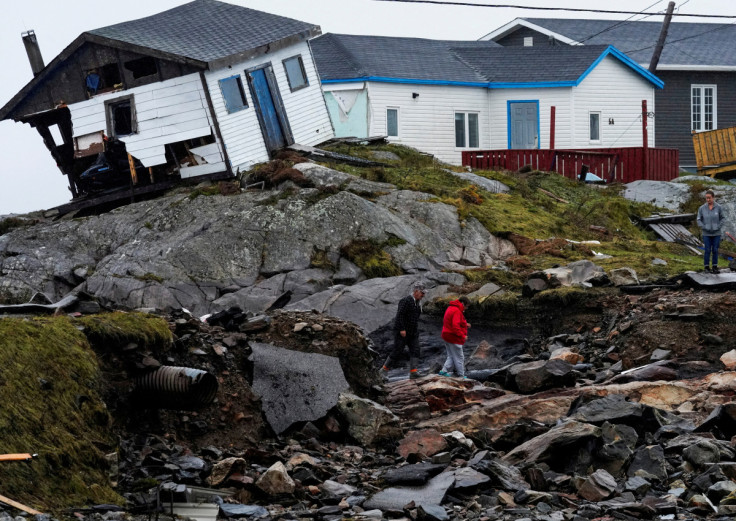After Fiona, Climate Experts Urge Canada To Fix Flagship Adaptation Strategy

Canada's first national climate adaptation strategy needs to be improved to include near-term targets and specific solutions ahead of its November release to mitigate worsening global warming impacts, experts advising the government told Reuters in the wake of devastation caused by storm Fiona.
Fiona, one of the worst storms to ever hit Canada, battered the Atlantic provinces over the weekend, sweeping homes into the sea, leaving at least three people dead. It is expected to cost between C$300 million and C$700 million in insured losses, compared with C$2.1 billion ($1.6 billion) of insurance damage for severe weather events across Canada last year, according to the Insurance Bureau of Canada (IBC).
The destruction comes weeks before Ottawa releases its first ever National Adaptation Strategy (NAS) in early November. The government has been developing the strategy since June 2021 to help communities weather natural disasters like storms, flooding and wildfires by building more resilient infrastructure.
But a number of climate adaptation experts who advised the federal environment ministry on creating the strategy have criticised the NAS for setting long-term objectives from 2030 onwards, rather than five-year targets as recommended by advisory committees.
"What we want out of the strategy is a clear plan and measurable short-term targets, not just a vision for 2030 and 2050," said Joanna Eyquem, managing director of Climate-Resilient Infrastructure at the Intact Centre on Climate Adaptation.
Climate Proof Canada, a coalition of nearly 30 organizations including insurers and the Canadian Red Cross, this month warned the NAS will be "too little, too late."
Craig Stewart, vice president of federal affairs at the Insurance Bureau of Canada said in recent weeks there have been signs the government is improving the NAS before its release and trying to "close the gap" between experts' recommendations and what Environment Canada officials are proposing by including short-term actions with clear targets.
"We hope that Fiona will help focus attention in Ottawa," Stewart said.
Environment Canada said in a Monday statement the NAS will create a framework to focus federal efforts, address gaps, establish targets and stand up a governance mechanism to continually increase resilience.
A 2020 report from the Federation of Canadian Municipalities estimated Canada needs to spend C$5.3 billion a year to adapt to climate change but the country is at least a decade behind Europe in developing a national strategy, experts said. Britain released its first national adaptation program in 2013, with five-year targets, and is currently developing a third version.
"Our first adaptation strategy needs to be a home run," said Ryan Ness, adaptation research director for the Canadian Climate Institute (CCI).
On Wednesday the CCI released a report showing by 2025 climate impacts will be slowing Canada's economic growth by C$25 billion a year, cutting projected GDP growth in half.
© Copyright Thomson Reuters 2024. All rights reserved.





















